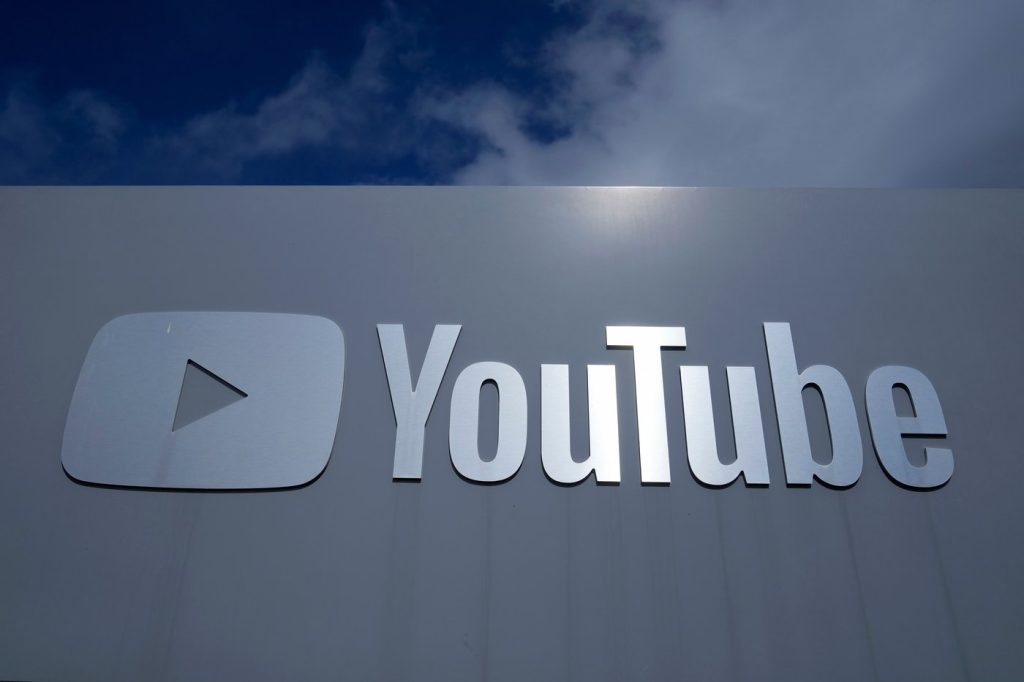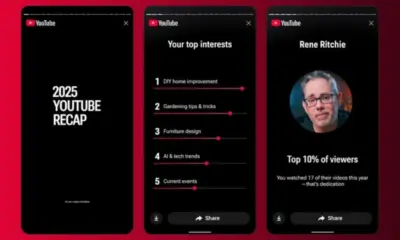Top Stories
YouTube Reinstates Banned Creators for COVID-19, Election Misinformation

UPDATE: YouTube has just announced a pivotal shift, allowing creators banned for violating former COVID-19 and election misinformation policies to return to the platform. This decision, confirmed by Alphabet on October 31, 2023, reflects the company’s commitment to free speech and marks a significant change in its content moderation strategy.
This move is set to impact numerous influencers, particularly those from conservative backgrounds, who have faced bans under now-expired policies. Notably, Dan Bongino, a prominent conservative voice, is among those who will now have the opportunity to rejoin the platform. The reinstatement process comes in response to pressure from the House Judiciary Committee and aligns with a broader trend of tech companies reassessing their content moderation tactics.
According to Alphabet’s representation in a letter to the House Judiciary Committee, the decision underscores a recognition of the value conservative content creators bring to civic discourse. The letter stated,
“No matter the political atmosphere, YouTube will continue to enable free expression on its platform, particularly as it relates to issues subject to political debate.”
This announcement is particularly timely as tech giants face increasing scrutiny over their moderation practices. Following the COVID-19 pandemic and the 2020 U.S. presidential election, many companies, including YouTube, implemented strict policies against misinformation, resulting in a wave of bans. However, these policies have since been rolled back amid allegations from conservative lawmakers that they unfairly targeted right-wing voices. Jim Jordan, Chairman of the House Judiciary Committee, has been vocal in urging tech firms to overturn restrictions imposed during the Biden administration.
In a significant policy change earlier this year, YouTube eliminated its rule against content that falsely claimed widespread fraud or glitches in the 2020 election. Furthermore, in 2024, the platform retired its standalone COVID-19 content restrictions, allowing for a broader discussion of treatments related to the virus. Now, COVID-19 misinformation falls under YouTube’s more general medical misinformation policy.
The implications of YouTube’s decision are vast. For many content creators, the ability to monetize their channels through ad revenue is critical. This reinstatement opens doors for financial opportunities previously lost due to bans. As the political landscape shifts, YouTube’s adjustment signals a new phase in its operations, striving to balance content moderation with the principles of free speech.
The broader context surrounding this decision includes allegations of government overreach into private sector content moderation. Alphabet’s lawyers claimed that senior officials in the Biden administration pressured the company to censor pandemic-related content that did not violate its policies. The letter asserted,
“It is unacceptable and wrong when any government, including the Biden Administration, attempts to dictate how the Company moderates content.”
As the platform embraces these changes, observers are keenly watching how this will affect the overall narrative on social media regulation. YouTube’s commitment to fostering diverse viewpoints, especially from conservative voices, is likely to provoke further discussions on the balance between combating misinformation and safeguarding free speech.
As of now, the process for reinstating banned creators remains unclear, with YouTube’s representatives yet to comment on specific details. However, the urgency surrounding this development cannot be overstated, as it reflects a significant shift in how tech companies are navigating the complex landscape of content moderation and free expression.
Stay tuned for further updates on this evolving story.
-

 Politics4 weeks ago
Politics4 weeks agoSecwepemc First Nation Seeks Aboriginal Title Over Kamloops Area
-

 World5 months ago
World5 months agoScientists Unearth Ancient Antarctic Ice to Unlock Climate Secrets
-

 Entertainment5 months ago
Entertainment5 months agoTrump and McCormick to Announce $70 Billion Energy Investments
-

 Science5 months ago
Science5 months agoFour Astronauts Return to Earth After International Space Station Mission
-

 Lifestyle5 months ago
Lifestyle5 months agoTransLink Launches Food Truck Program to Boost Revenue in Vancouver
-

 Technology3 months ago
Technology3 months agoApple Notes Enhances Functionality with Markdown Support in macOS 26
-

 Lifestyle3 months ago
Lifestyle3 months agoManitoba’s Burger Champion Shines Again Amid Dining Innovations
-

 Top Stories2 months ago
Top Stories2 months agoUrgent Update: Fatal Crash on Highway 99 Claims Life of Pitt Meadows Man
-

 Politics4 months ago
Politics4 months agoUkrainian Tennis Star Elina Svitolina Faces Death Threats Online
-

 Sports5 months ago
Sports5 months agoSearch Underway for Missing Hunter Amid Hokkaido Bear Emergency
-

 Politics5 months ago
Politics5 months agoCarney Engages First Nations Leaders at Development Law Summit
-

 Technology5 months ago
Technology5 months agoFrosthaven Launches Early Access on July 31, 2025





















